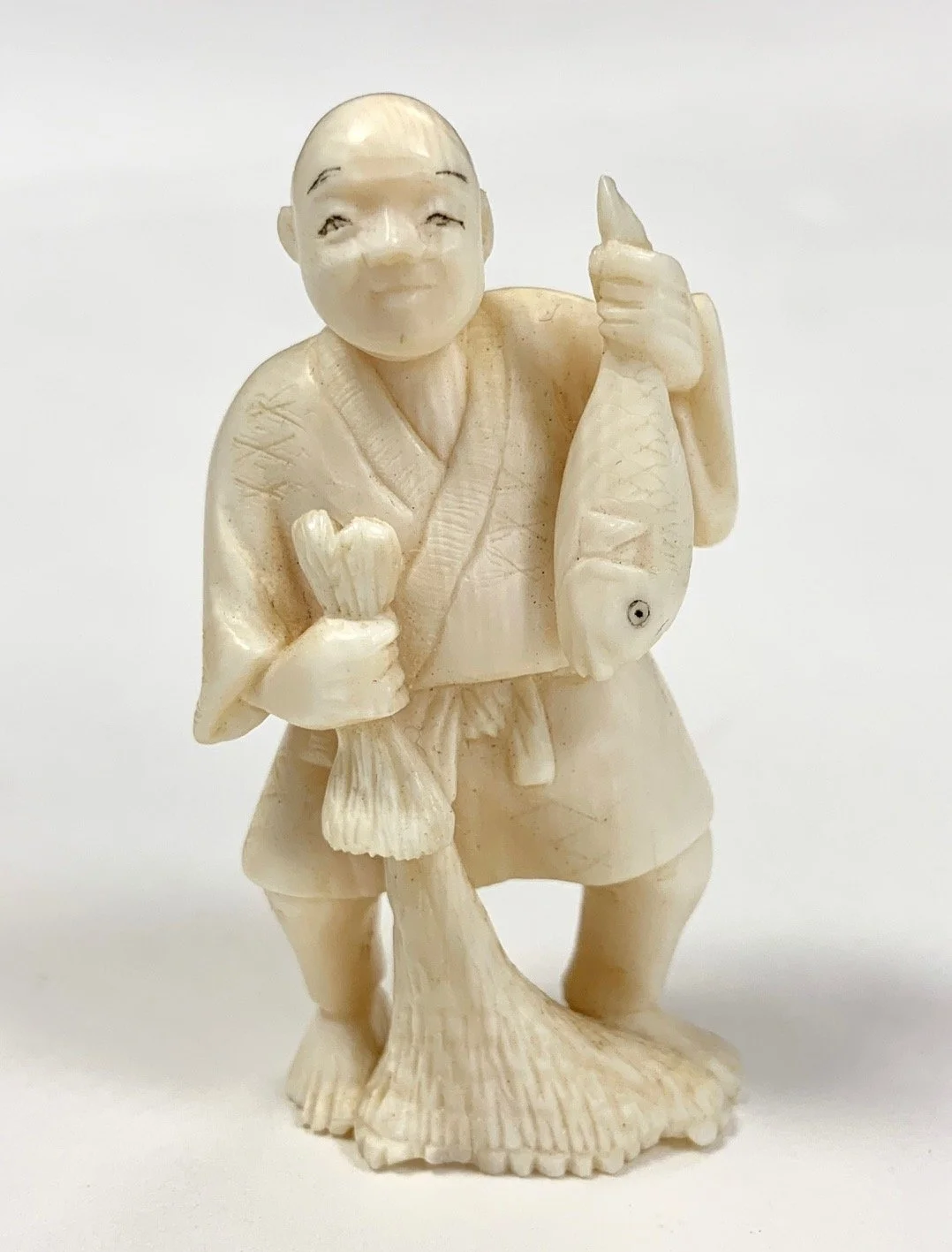
Asian Handworks
Man with Fish Netsuke
Man with Fish Netsuke
Antique Japanese ivory, 1.75” x .75”
A netsuke (根付) is a miniature sculpture using various materials, originating in 17th century Japan. Netsuke has evolved over time, originating as a simple, carved button fastener used on the cords of an inrō box, netsuke to objects of artistic merit and expression, showcasing extraordinary craftmanship and ornateness. Originally the inrō box held small belongings that could be stored in the sleeves of kimonos (which didn’t have pockets), or for sagemono; sturdy boxes which were hung by cords from the sashes of men’s robes. Netsuke production was most popular during Japan’s Edo period (1603–1867). As Westernization became more prominent in Japan, Netsuke inrō declined as traditional clothing starting phasing out after the Meiji period (1868–1912), but Netsuke continued to become highly collectible to international collectors, and some of the best collections can be found in Europe.
Tradionally, the most common material used was ivory before it became illegal for trade. Hardwoods – most commonly boxwood, were popular during the Edo period. Porcelain was used, as well as lacquer and cane. Mammoth ivory, (which is still abundant in the Near East and Siberia), among other animal materials, such as Hippopotamus tooth, boar and walrus tusk, as well Rhinoceros horn, are still used today.